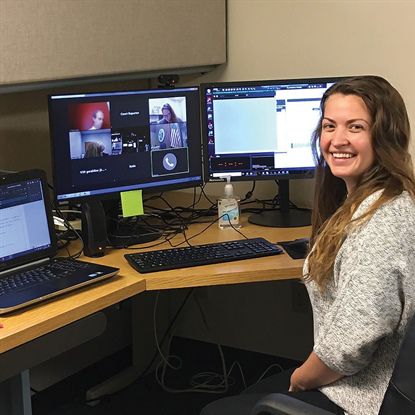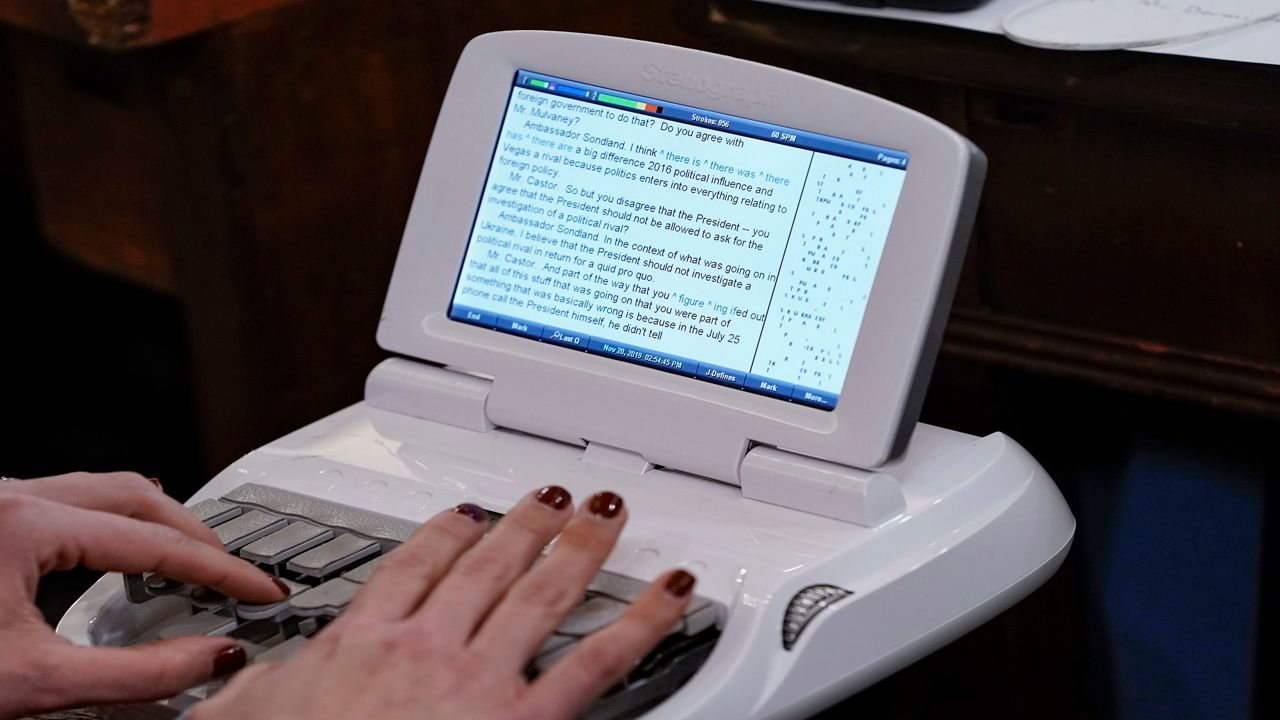APPLETON, Wis. — It was a conversation the common person would have likely chosen to politely remove themselves from.
“So, how about that shortage of court reporters?”
“Excuse me; I need more bean dip.”
But Jeff Meverden was not put off by this topic. Rather, as department chair of Paralegal, Small Business Entrepreneurship and Digital Court Reporter Programs at Fox Valley Technical College, his ears immediately perked up.
What he quickly learned was the shortage of court reporters in Wisconsin was fast approaching a crisis situation. Of the 300 court reporters in the state, the projection was that in three years a total of 60% would be retired or could be retiring.
So a court system often ridiculed for being painstakingly slow was heading in a direction that would make a three-toed sloth look lightning fast.

“That’s a real problem,’’ Jon Bellows, District Court Administrator for the 4th Judicial District in Oshkosh, said of the court reporter shortage, which he said is a national trend. “Reporters take the record in circuit courts, which are courts of record; it’s not an optional exercise. So we have to find some way of continuing to take the record in our circuit court.
“There’s not a judicial district in the state that isn’t struggling to cover courts with our existing court reporter pool.”
How the court systems got here can be traced to a couple of key components. Fewer schools began to offer the traditional two-year technical degree program as fewer students saw that as a career path, and eventually, those schools dropped such programs. And students who did enter court reporter programs struggled mightily to meet the words per minute threshold required before being able to seek employment.
“These people have to type so ridiculously fast even people who were in the program were spending three, four, five, six years trying to get their speeds up,’’ said Meverden. He also discovered that many of those who finally managed to hit the typing threshold often chose an alternative industry rather than the courts.
The solution was a digital court reporter program, and FVTC established the first and only such program in the state and only one of two in the nation.
“One of the things that technical colleges in the state of Wisconsin are designed to do is work with employers when there is a shortage of employees,’’ said Meverden. “So that’s how I kind of got into creating this program and getting it up and running so we can solve part of that problem.
“We, basically, at the college level had to adopt what the court system was doing. So the court system turned to a company out of Colorado called For The Record, and went ahead and began equipping the court rooms with the hardware and the software. Basically what we had to do, to ensure our students walk out with that knowledge, is to bring that in that as well.”
There is no longer a heavy emphasis on typing speed. Rather, students learn basic court reporting fundamentals, receive training on the digital hardware and maintenance of equipment, and transcription training.
“It’s different than being a stenographic court reporter,’’ said Meverden. “You still need to be able to create a transcript at the end of the day, but it’s different; you create that with all the equipment.
“The first half of the job is that they have to be present during the hearing or the court proceeding, and they can be physically present in the courtroom, or in the case of COVID times, they can be remote. But they have to be present. They have to be listening to everything. They have to make sure all of the equipment is recording exactly what is going on. They have to make sure the people who are speaking are speaking clearly. They have to ensure that it’s not a head nod instead of a verbal response and each person is recorded on a different track. In some cases, they will have to stop the proceeding if someone is not speaking clearly, or if there is an equipment malfunction.
“Then, once the proceeding is completed, then they have to make sure it’s stored correctly, stored for easy access later on if someone needs a transcript and then, if a transcript is requested, then they will create that written, or digitally written, transcript.”
There have been some concerns raised among attorneys and judges as they get used to the new technology and a new way of conducting business, but in particular from traditional court stenographers with the idea that this new technology could make them obsolete.

“This is my sense; the stenographers have been concerned about the trend,’’ said Bellows. “Although, I will tell you, that under no plan are the stenographic court reporters going to lose their jobs with the state courts. We need every stenographic court reporter and every digital court reporter that we can find in order to cover the courts in Wisconsin. Stenographic court reporting is not going away; it just needs to be supplemented to keep all of our courts running. It’s a real skill.”
Meverden currently has nine students in his class, and he and Bellows are hoping to see those numbers grow. They also hope there is a possibility digital court reporting may help extend the careers of stenographic court reporters, who are often beset by physical ailments such as carpal tunnel syndrome.
And from an economic standpoint, it’s a sound investment as far as Meverden is concerned, especially since the digital court reporter program is a one-year degree.
“I think the exciting thing for anyone who is interested in that for a one-year technical diploma they have the opportunity to go work for the state, and we know that the state has great salaries and benefits, so for a one-year investment, they start at a salary that’s a little over $40,000 a year and get all those great benefits. So I think for a return on your investment, I don’t think you can do much better; investing about $5,000 into your education and coming out with a great career.”
Have a story idea? You can reach Mike Woods at 920-246-6321 or @michaet.t.woods1@charter.com



